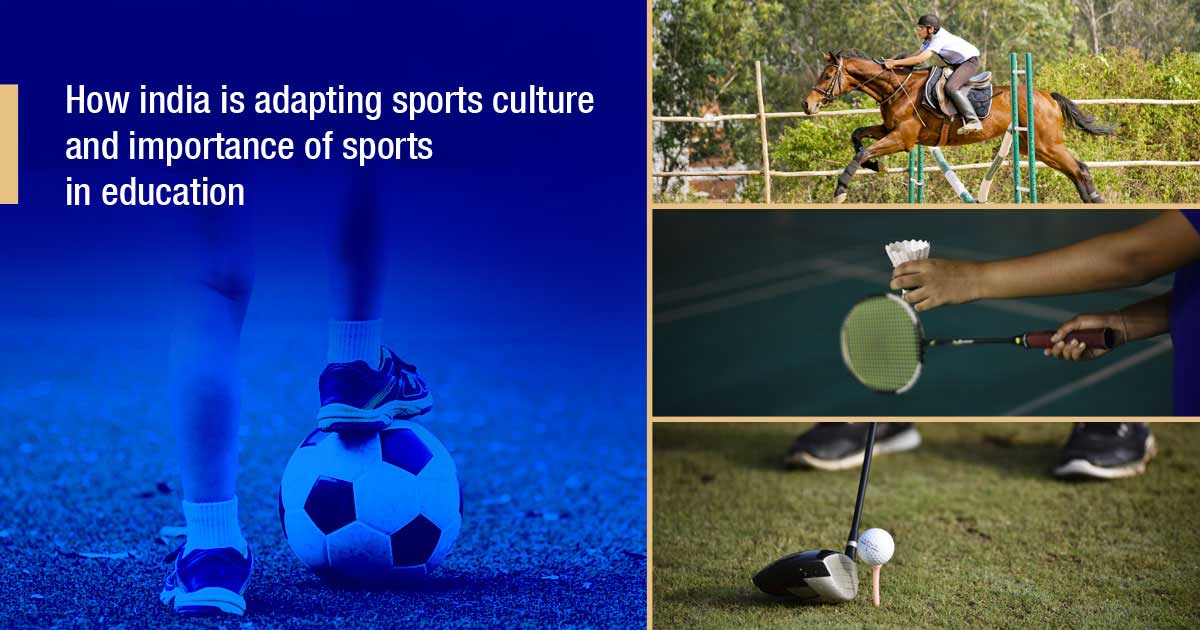

Sports have been an integral part of the world culture dating back as far as ancient civilizations. The most eminent example of sports culture and society, the Olympic Games are more than 3,000 years old. Sports have always had an extraordinary impact on society, culture, economy, and every other facet of a nation. For those engaged in sports, sports are the epitome of diligence, hard work, and dedication. The popularity of sports culture can be determined by the fan base football and cricket enjoy worldwide. Sports help people maintain the best of their physical, mental and psychological health. Owing to the widespread popularity of the internet and television, people consume sports on a massive scale. The celebrity status of top sportspersons validates the importance associated with sporting events.
Sports and academic life
Schools and colleges are the setups where young minds spend a significant amount of their time. During these formative years, the focus should be on the overall development of a child. Sports, education, and health share an elemental link, and together they contribute significantly to the holistic development of a child. Every school and college has sports as part of their curriculum, as they understand the significance of physical health and activities. We live in times where sports are not seen just as a hobby but a way to achieve a healthy body and mind, making them an essential part of education. Now education is not anymore solely limited to academics; sports have become an integral part of it.
The changing dynamics of sports culture in India
A good sports culture is an index to measure a nation’s growth and progress. The medals and trophies earned by players at globally recognized sporting events bring glory and honor to the country. India has an ancient and rich culture of traditional sports. During the pre-independence period, sports culture in India could not bloom due to the challenges related to economic and social reforms, but later the country borrowed modern sports like cricket, badminton, tennis, volleyball, etc. from the outside. Over time sports earned the interest of people. The popularity and respect of individuals associated with sports kept on rising. People went on to even claim cricket as a religion in India. India was no longer taking baby steps at this point and managed to win significant world tournaments of sports. The 1983 Cricket World Cup won by India’s national cricket team became a historic event for the country. India, as a country, produced sportspersons who went on to become masters and world champions of sports they were associated with.
Opportunities in sports
There is a broad spectrum of professional opportunities that sports as an industry offers. In addition to a sportsperson, one can become a trainer, sports coach, athletic director, marketing and promotion coordinator, PR, physical therapist, sports and fitness nutritionist, sports journalist, sports announcer, sports agent, umpire, referee, sports photographer, a sports lawyer, etc. There are professional courses and dedicated educational institutions to serve the individuals aspiring to make a career in the sports industry.
The role of the Indian Government
The Indian Government recognized the importance of sports and formed the National Sports Policy in 1984, aiming to make sports and physical education an essential part of the academic curriculum. The revised National Sports Policy, 2011, advocates the importance of sports and physical education in developing better individuals, enhancing productivity, and bringing social harmony. Through the initiative ‘Khelo India Youth Games’ under the ‘Khelo India’ program, the government aims to support the development of sports culture at the grassroots level. Also, there are National Sports Awards dedicated to acknowledging the contribution and efforts of sportspersons. The popular awards are Arjuna Award, Maulana Abul Kalam Azad Trophy, Rajiv Gandhi Khel Ratna, Dronacharya Award, Dhyan Chand Award, and Rashtriya Khel Protsahan Puruskar.
The role of a school
A child needs to engage in sports as it offers holistic development and positive personality traits. A school is a place that helps children discover their interests, inclination, and strengths. Thus, it becomes vital to choose a school that offers good sports infrastructure and encourages students to engage in sports. The teachers also play a significant role in helping kids identifying their favorite sports and then mastering them. Through sports, a school inculcates qualities such as leadership, dispute management, team-building, healthy competition, and discipline in the students.
Sports Education is a significant part of the curriculum offered at JIRS. Considered as one of the best international sports schools in India, JIRS strongly believes that academic success and sports together form a strong foundation that helps students become talented and smart individuals. The expert faculty and seasoned sports trainer at JIRS have created a flexible school environment and support system for providing exceptional sports training and education.
“Sports serve society by providing vivid examples of excellence.” - George F. Will
Recent Blogs
Site Designed and Maintained By : Office of Communications, JAIN Group All rights reserved.